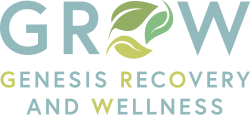Addiction is a chronic, relapsing disease, and relapse prevention therapy is essential to addiction treatment. Relapse prevention therapy helps people to identify the warning signs of relapse and to develop strategies for avoiding relapse. It is important to remember that relapse is not a failure but part of the disease of addiction. Most people can achieve long-term sobriety with suitable treatment, support, and some tips to avoid relapse.
Few things are more complicated than learning how to avoid relapse after a period of addiction. It takes time, dedication, and hard work to break the cycle of relapse, but with the proper understanding and support, you can overcome it. Call 216.331.2998 to speak to someone from Genesis Recovery and Wellness (GROW) about the relapse prevention therapy we offer in Ohio.
5 Tips to Avoid Relapse
Here are five ways to avoid relapse. You can work with these tips on your own, but it would benefit you to seek relapse prevention therapy or join an aftercare program. Professional and peer support can be crucial in helping you to stay sober.
1. Understand Your Triggers
The first step in avoiding relapse is understanding what triggers your cravings for substances or behaviors. Common triggers include the following:
Being around people who use drugs or alcohol
- Boredom
- Loneliness
- Stress
- Unhealthy relationships
Knowing your triggers can help you recognize them when they arise and give you the power to avoid them or cope with them in a healthy way.
2. Create a Support Network
Accessing an encouraging support system is essential in avoiding relapse and staying on track with your recovery journey. Surround yourself with people who care about you and want to support you through this process—a therapist, mentor, sponsor, or friend in recovery—anyone who will provide positive reinforcement and accountability that can help keep your sobriety goals on track.
3. Practice Self-Care
Self-care is often overlooked in addiction recovery and relapse prevention therapy, but it’s essential nonetheless. Spend time doing activities that make you feel relaxed and fulfilled, like:
- Exercising regularly
- Pursuing hobbies that interest you
- Taking time for yourself each day
Whatever helps clear away the stressors of life can be part of your self-care practice. These habits can help you fill your days with activities that won’t lead to a desire for substance abuse or other risky behaviors.
4. Track Your Stress Levels
Stress is one of the most common triggers for relapse, so tracking your stress levels and finding ways to manage it can be beneficial. Identify which activities help reduce stress and add them to your daily schedule. Some ways to reduce stress include:
- Meditation or yoga
- Journaling
- Talking with a therapist
Like practicing self-care, tracking stress levels can be a critical way to avoid relapse. Your relapse prevention plan should focus on ways to reduce stress.
5. Make a Relapse Prevention Plan
Finally, every person who completes an addiction treatment program should have a relapse prevention plan. In fact, most rehab centers include aftercare planning as part of their addiction treatment plans.
Having a relapse prevention plan in place can be helpful in avoiding relapse. Your plan should include identifying warning signs and triggers, coping with cravings, and reducing stress. Revisit your relapse prevention plan regularly so that you’re prepared when the urge to use drugs or alcohol arises.
Find Relapse Prevention Therapy in Ohio at GROW
Learning how to avoid relapse can pave the way for a successful recovery journey. When armed with knowledge and support, you can take control of your life and make positive changes that will help you avoid relapses in the future. At GROW, our professionals offer relapse prevention therapy in Ohio to provide the support and treatment you need to stay on track. Contact GROW today at 216.331.2998 to learn more about our services or get started on your journey to recovery.

